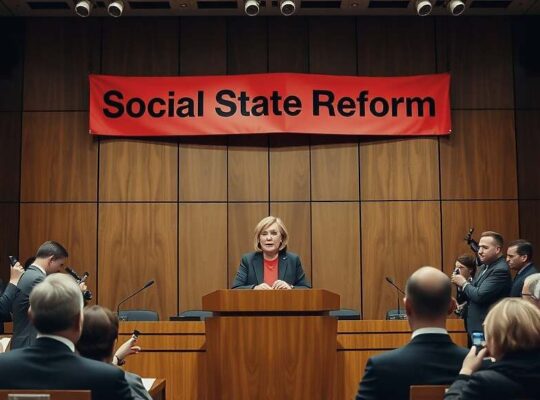A reassessment of the December 20, 2024, attack on the Magdeburg Christmas market suggests a meticulously planned act of terrorism, directly contradicting prior assessments by the Federal Criminal Office (BKA) and the state criminal investigation office (LKA). A 40-page expert analysis, authored by sociologist and Islamic studies scholar Hans Goldenbaum, paints a disturbing picture of a perpetrator, Taleb A., embedded within a transnational, predominantly far-right extremist network.
Goldenbaum, head of the SALAM center for violence prevention in Saxony-Anhalt, analyzed approximately 2,000 online posts by the perpetrator. His findings indicate a deliberate selection of the target location and victim group, signifying a targeted assault rather than the actions of a disoriented lone individual. The perpetrator, according to the report, prepared for the attack over several years, repeatedly foreshadowing his intentions and actively participating in an international far-right online community.
The analysis reveals Taleb A. disseminated content from known extremist figures, propagated conspiracy theories surrounding an alleged “Islamization of Europe” and formulated specific political demands, including legislative reforms and the closure of a refugee aid organization. Critically, the report concludes the attack aimed to “illegally compel public bodies to perform or refrain from actions” a hallmark definition of terrorist violence.
The revised classification carries significant implications, particularly for the victims of the attack. The prior designation as an “Amokfahrt” – a violent rampage by a psychologically disturbed individual – precluded access to state funds provided through the national Terrorism Victim Fund. This new assessment, recognizing the attack as politically motivated terrorism, opens the possibility of financial assistance. The Federal Ministry of Justice had previously earmarked a one-time special payment of €25 million to aid the victims, a measure previously stalled by the earlier classification.
The findings are likely to trigger a renewed political debate around the assessment of extremist violence within Germany and the adequacy of existing preventative measures. The discrepancies between the current expert analysis and previous official evaluations raise questions about the initial investigative processes and the challenges of identifying and monitoring online extremist networks. The case also highlights the potential for exploiting psychological instability to carry out politically motivated acts of violence, demanding a critical reevaluation of strategies for identifying and addressing such risks.












